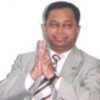Vedantic Democracy, Education and Peace
UNITED NATIONS, 14 Sep 2020
Surya Nath Prasad, Ph. D. – TRANSCEND Media Service
Dedicated to the UN International Day of Democracy, 15 September
All men tend to be free. Freedom is the birth right of every man irrespective of caste, creed and color. Rousseau asserted, “Man is born free”, however, he realized also, “but he (man) is everywhere in chains”. And the great ancient Indian saint Tulsidas, the author of the popular book Shri Ramcharitmanas felt, “There is no peace and happiness in slavery even in dreams”, and Lord Mahavira, a great saint of Jain religion suggested that anybody who was capable to help should make the people free, because the greatest charity among all charities is to make the people free and fearless. And the Tehran Declaration Signed by Roosevelt, Churchill, and Stalin declared as their aim, “a world family of democratic nations, whose peoples in heart and mind are dedicated, as are own people, to the elimination of tyranny and slavery, oppression and intolerance.”
In the introduction of the book entitled: Democracy, Education and Peace, Dr. Surya Nath Prasad compares the teaching of Vedanta with the teaching of democracy. It is the Vedanta that the super existence of God once was absolute one. There was a danger for him to be autocrat and tyrant. So he desired to be many and He became. It is also said that the will of one’s own self is the will of soul or spirit, while the will of selves of all are the will of God. It means that our own selves separately are souls, but selves of all collectively are God (Apni Atma Atma Hai, Sabki Atma Paramatma Hai). And it is said that people are God (Janata Hinn Janardan Hai).
Thus Vedanta or democracy is the non-dynamic side of education, and education is the dynamic side of democratic or Vedantic philosophy. Whatever Vedantic or democratic philosophy has, education must inculcate in the minds of all to be evolved and progressed utmost as human beings. Therefore there is an urgent need of Vedantic democracy to be implemented and practiced everywhere for sustainable freedom, development and peace for all. It is also the fact that there is harmony in all religions in the sense of God in all people (for examples: Aham brahamasmi – I am the God – Vedantic Hinduism, Kingdom of God is within you – Christianity, Insan Alah ka Ek Kunba – People are the family of God – Islam), because people are abode God. Hence all people should be treated equally and are entitled to take part in governance to serve better to their fellow-beings living together and helping each other. These are the essence of genuine democracy based on philosophy of Vedanta as well as philosophy of other religions.
In ancient India, there was a democratic king Lord Shri Rama, who was truly educated, and hence, he was able to provide good governance to the people, and it is said that under his governance, there was no physical, mental and spiritual sufferings to anybody. All loved each other. No one died in early age of his life; all people were free from sorrow and pain, disease, poverty and ignorance. This was the reason Mahatma Gandhi, the father of the nation wanted the governance in the state politics like governance of Shri Rama.
The author of these lines hopes that the representatives of the people must learn perpetually about the universally inherent without any discrimination the five elements, viz. body, vitality, mind, intellect and spirit integrally, to be truly educated and to be just to provide good governance to the people, who will also follow and practice because they are future representatives of the people to take part in governance, which will help for creating a genuine democracy for peace, and it will be a model for the people and persons in the governance of state politics of other nation-states to follow and practice.
____________________________________________________
 Dr. Surya Nath Prasad, former president & currently executive vice president of International Association of Educators for World Peace (IAEWP), associate professor of education emeritus, former visiting professor, the graduate institute of peace studies, Kyung Hee University, Republic of Korea, founder & editor-in-chief, Peace Education: An International Journal. dr_suryanathprasad@yahoo.co.in
Dr. Surya Nath Prasad, former president & currently executive vice president of International Association of Educators for World Peace (IAEWP), associate professor of education emeritus, former visiting professor, the graduate institute of peace studies, Kyung Hee University, Republic of Korea, founder & editor-in-chief, Peace Education: An International Journal. dr_suryanathprasad@yahoo.co.in
Tags: Democracy, United Nations
This article originally appeared on Transcend Media Service (TMS) on 14 Sep 2020.
Anticopyright: Editorials and articles originated on TMS may be freely reprinted, disseminated, translated and used as background material, provided an acknowledgement and link to the source, TMS: Vedantic Democracy, Education and Peace, is included. Thank you.
If you enjoyed this article, please donate to TMS to join the growing list of TMS Supporters.

This work is licensed under a CC BY-NC 4.0 License.